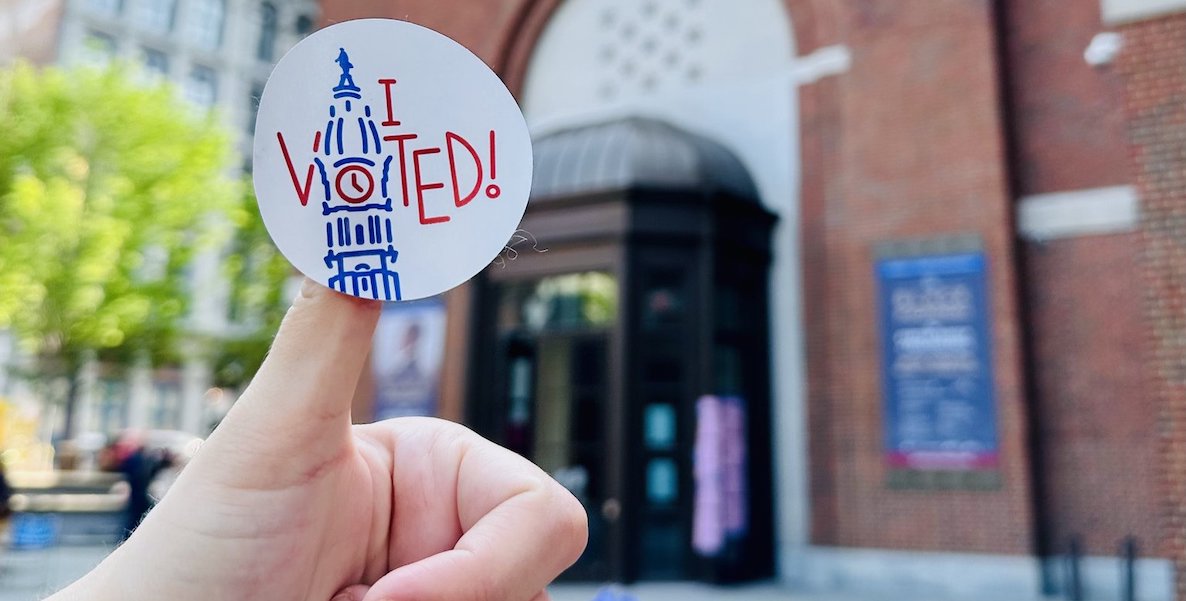In the 2024 presidential election, Pennsylvania was once again a pivotal battleground state. Republican candidate Donald Trump and Democratic nominee Kamala Harris crisscrossed the state, hosting rallies in Philadelphia, Pittsburgh, and the suburbs, while millions of dollars poured into ads and canvassing efforts. The stakes were high, with both campaigns framing Pennsylvania as critical to securing the White House.
But just weeks after Trump’s victory, the attention has evaporated. Campaign buses are gone, ads have disappeared, and the promises made to voters seem to have vanished. Philadelphia, a city whose turnout has been key in past elections, feels forgotten once again — reduced to a campaign-season necessity rather than a year-round priority. After election day, most people just went back on with their lives. But the next time Philadelphia and Pennsylvania become the center of the political universe, people will remember that they haven’t felt the attention since the last time they were needed to do something.
This pattern is not new; it reflects a deeper, systemic problem. For years, Democrats have leaned heavily on cities like Philadelphia, with their large populations of Black, brown, and working-class voters, to deliver crucial margins in tight elections. Yet, voter turnout in Philadelphia dropped to just over 63 percent in 2024, down from 66 percent in 2020. This should sound alarms for a party that depends on these voters to win battleground states like Pennsylvania.
Voters are tired of being treated as numbers on a campaign spreadsheet. They’re weary of being courted with lofty promises every four years, only to be ignored once the election is over. In neighborhoods across Philadelphia, where economic inequality, gun violence, and underfunded schools remain pressing realities, disillusionment runs deep. Residents are left asking, “Was the promise from candidates to fight for us only conditional if they won the election?”
Democrats can no longer rely solely on fear of the alternative to drive voter turnout. Instead, we must inspire voters with a clear, compelling vision of what government can achieve when it works for everyone.
If Democrats want to regain ground in Pennsylvania and beyond, this moment calls for serious introspection. Election Day cannot be treated as the conclusion of voter engagement but as the beginning of accountability. Campaigning on progressive ideals is not enough—Democrats must deliver on them.
Donald Trump’s victory in 2024 is a stark reminder that complacency is not an option.
Democrats can no longer rely solely on fear of the alternative to drive voter turnout. Instead, we must inspire voters with a clear, compelling vision of what government can achieve when it works for everyone. This means standing for a government that doesn’t just ask for support during elections but earns it every day through action, accountability, and a commitment to addressing the challenges people face.
What does this look like? It requires a sustained presence in communities year-round. This means investing in local organizing, supporting grassroots leaders, and building coalitions that address the issues voters care about most. It also means being honest about the challenges ahead while showing that tangible progress is possible when communities remain engaged.
Mayor Parker has touched on this on the governing side with the mini City Halls she has opened in neighborhoods around Philadelphia. On the political side, we could use the same kind of sustained presence. There is a clear call from people that feel like their government isn’t listening to them or is not responsive to their needs. Ongoing listening sessions — not just campaign rallies — would go a long way, especially if matched by policy change.
Pennsylvania voters deserve leaders who stay engaged long after the campaign ends — leaders who fight for safer neighborhoods, better schools, and real economic opportunities. If Democrats can deliver on this vision, Pennsylvania won’t just be a key battleground state; it will set the standard for rebuilding trust and creating lasting change across the country.
Mustafa Rashed is president and CEO of Bellevue Strategies, a government strategy and political consulting firm.
The Citizen welcomes guest commentary from community members who represent that it is their own work and their own opinion based on true facts that they know firsthand.
![]() MORE ON PENNSYLVANIA AND THE ELECTION
MORE ON PENNSYLVANIA AND THE ELECTION



